“The Fact That The NW And SW Regions Are Into This Union, We Are Benefitting”
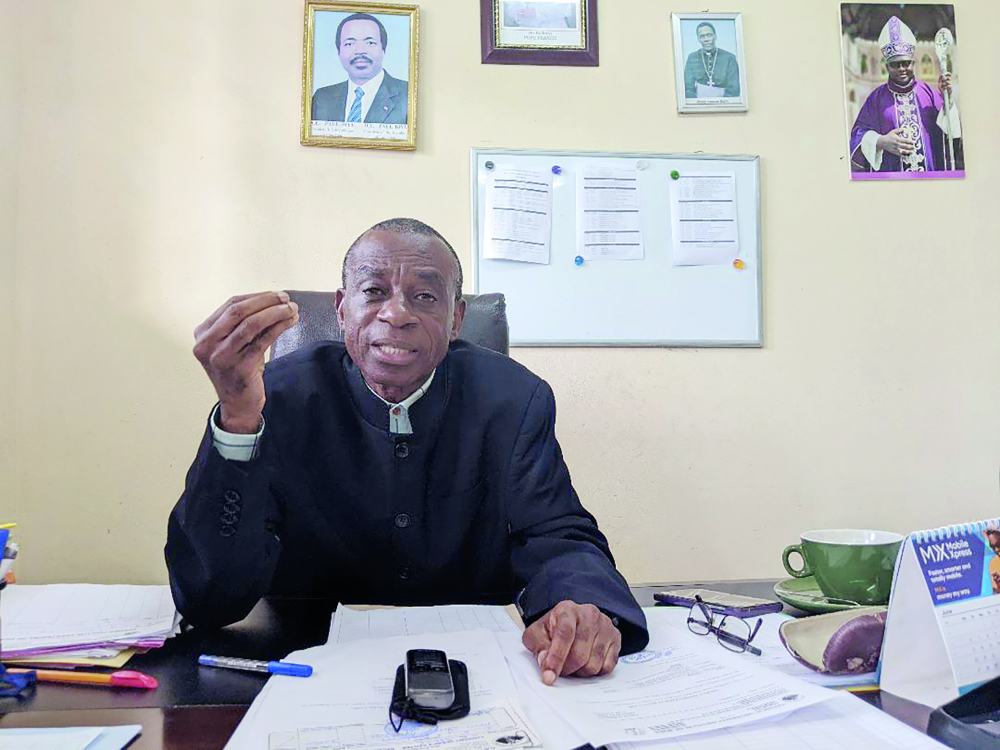
Professor Victor Julius Ngoh, Historian and writer
You are a renowned historian in Academic circles. 20th May 2022 marks 50 years of Cameroon re-unification since 1972. What assessment do you make of this journey?
Thank you very much, the unitary journey since 1972 has not been as smooth as one would have expected. First of all, the misinterpretation of what happened in May 1972 has led a good number of Anglophones to believe that it was illegal and a violation of the Constitution. They are quick to refer to ARTICLE 47 of the then Constitution of the Federal Republic of Cameroon. Article 47 in summary states that no revision of this Constitution, which affects the unity and territorial integrity of the federation, shall be accepted. What some Cameroonians and Anglophones fail to understand is that the sovereignty of any country is on the people, it lies with the people and that should be made very clear. Article Two of the Constitution of the Federal Republic of Cameroon states in summary that sovereignty lies with the Cameroonian people and can be exercised in two ways either by the elected members of Parliament or by a referendum. President Ahidjo, in 1972, opted for a referendum. That is the totality of eligible Cameroonians to express their sovereignty and Article Eight fell in line with Article Two. So, what occurred in May 1972 (referendum) was very much in line with the Federal Constitution. Another Article stated very clearly that for any major constitutional revision to be effected, the majority Members of Parliament in each of the two Houses of Assembly that is the East Cameroon House of Assembly and the West Cameroon House of Assembly must have accepted to vote “Yes”. It meant that if less than 50 percent of the West Cameroon Parliamentarians in the National Assembly voted “No” and 100 percent of East Cameroon Parliamentarians voted “Yes”, the abrogation of the federal law would not have taken place. Secondly, it should be understood that the votes were counted separately. Votes in East Cameroon and votes in West Cameroon were counted separately. West Cameroons voted overwhelmingly for the dismantling of the federal system of Government. So, it was not the population of French Cameroon (Francophones) resident in West Cameroonians who tilted the votes. No, we should understand we are talking of 1972 and the population of Francophones in West Cameroon was very negligible. Nobody in his right mind can say that the votes of Francophones in West Cameroon tilted the result in favour of abrogation. Thirdly, and most importantly, the misconception that there was only one ballot paper “Oui and Yes” should be corrected. There were two ballot papers. One was white with referendum questions in French and English and had “Oui and Yes”. The other ballot paper was black and had the referendum questions in English and French with answers “Non and No”. So, as far as the issue is concerned, all West Cameroon politicians including Henry Elangwe, E.M.L Endeley, S.T. Muna, J. N. Foncha, A. N. Jua, Bernard Fonlon, and all the Fons and Chiefs campaigned and voted for the abrogation of the federal system.
How far have we gone in this union?
Between 1972 and 2022, which we are now celebrating as 50 years of the unitary system, we have gone through some difficult moments because of the failure to explicitly explain the importance and significance of what happened in May 1972. Secondly, the refusal or failure of the government to adequately take care of the totality of Cameroonians especially the population of the North West and the South West who agreed on their own free will to achieve independence by joining the Republic of Cameroon in 1961. There are certain issues which former West Cameroonians, now referred to as Anglophones of the North West and South West Regions, feel they have not benefitted from the unitary system. They complain of marginalization, non-appointment in certain sectors. Before 2018, they cited a good number of Ministerial positions but after 2018 the complaints of the Ministerial positions were addressed. But it is not possible for Cameroonians to understand why after 50 years, Cameroonians cannot be proud to say we have good drinking water, electricity, good educational system, and good roads. It is unacceptable that after fifty years, the population of Yaoundé, Douala, Buea, Far North etc., still complain of lack of water. These are not issues that we should still be talking about. The quantity of timber that comes from the East Region, the quantity of oil that comes from the South West Region as Cameroonian wealth are some of the worrying issues. With all of these, we still have the situation in the Grand North affected by the terrorist Boko Haram. We now have the devastating socio-political crisis in the North West and South West Regions to the extent that some Anglophones have fallen victim to misinterpretation and misinformation saying that they are fighting for the restoration of their independence and they give the impression that before 1st October 1961, Southern Cameroons had her independence. Southern Cameroons did not have independence before October 1961. Southern Cameroons only achieved independence by joining the Republic of Cameroon. This means that if Southern Cameroonians had said “NO” to the referendum question, they would not have had independence when they did and the way they did. Unfortunately, the crisis in the North West and South West Regions has degenerated into an armed conflict and the victims are mostly Anglophones whom the separationists claim to be fighting for, this threatens the national unity of Cameroon. The atrocities committed by the Amba are unacceptable. We should also understand that once in a while, the Cameroon Military goes out of the way to get rid of the bad eggs. We should understand that the Military has a constitutional assignment to protect the peace, unity and territorial integrity of the country. We cannot equate them the same way as the amba fighters. The separationists have no authority; they have not been mandated by anybody. I have not seen any conference where the population of the North West and South West said this is what we want them to fight for our independence. I am yet to see that. And it is from this that we have fallen victim to kidnapping for ransoms, killing and man slaughtering, destroying property. Cameroon is suffering, families are suffering, and businesses are crumbling. In the North West and South West Regions, business people with growing insecurity cannot go about their normal activities on Mondays. This is a lot of strain on the economy, the finances of the population of North West and South West and the people of Cameroon at large. They have destroyed the CDC and Pamol Ltd, for example
How useful has the 1972 referendum been to Cameroonians?
Sincerely, the world situation is moving towards larger political and economic regions. It doesn’t pay for the fragmentation or balkanisation of Africa. Just the fact that the North West and South West Regions, former Southern Cameroons, are into this union, we are benefitting. If the cake is equitably shared it could be a very beneficial situation. Cameroon is a very rich country with rich natural and human resources. The key word should be unity in diversity and I hope Cameroonians, both Anglophones and Francophones, will look at the nation and the treasure therein and work towards upholding the unity for the interest of the nation and not for our personal gains. People come and go but these institutions will stay on.
Can we conclude that the referendum was a good thing but the management of it remains problematic?
Yes, it was a good thing to unite. One thing I will like to make clear is that it was not a reunification in 1972. It was a change from one political system, the federal system of government, to another system of government, the unitary system. The reunification took place on October 1, 1961, and put in place the federal structure of the Republic of Cameroon. In 1972 what happened was the federal system of government was replaced by a unitary system but unfortunately Cameroonians make a mistake by saying that what occurred in 1972 was reunification. It was not.
But book writers have been using the terminology of re-unification.
No, it is not supposed to be and it adds to the fact that Cameroonians don’t know their history. For any responsible Cameroonian to say what occurred in 1972 was reunification, then what do we call what happened on October 1, 1961? I pray that you, the Journalists, who are the fourth arm of the government, should state the facts correctly. What occurred on October 1, 1961, was reunification of Southern Cameroons with their brothers of the Republic of Cameroon. What occurred in 1972 was a change of government from the federal system to the unitary system, which was done through a referendum of which both the East Cameroonians and West Cameroonians participated with a 90.6 percent acceptance vote.
Do you think if a similar referendum were repeated today the results would be the same?
It should be made very clear and it should be understood that History is very stubborn and does not fear anybody. History is de...
Cet article complet est réservé aux abonnés
Déjà abonné ? Identifiez-vous >
Accédez en illimité à Cameroon Tribune Digital à partir de 26250 FCFA
Je M'abonne1 minute suffit pour vous abonner à Cameroon Tribune Digital !
- Votre numéro spécial cameroon-tribune en version numérique
- Des encarts
- Des appels d'offres exclusives
- D'avant-première (accès 24h avant la publication)
- Des éditions consultables sur tous supports (smartphone, tablettes, PC)






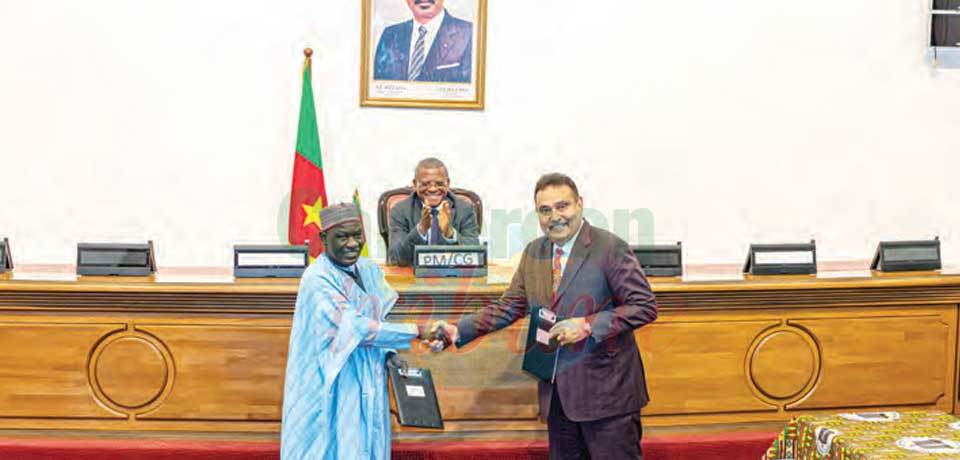
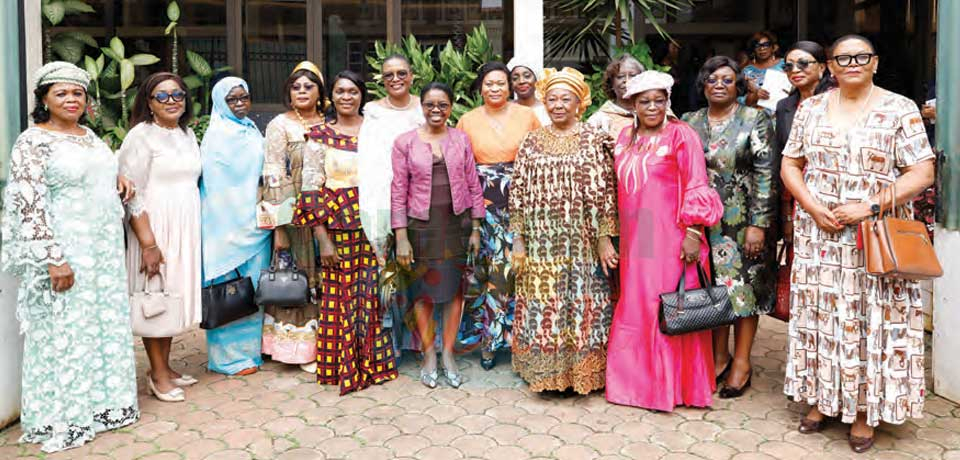
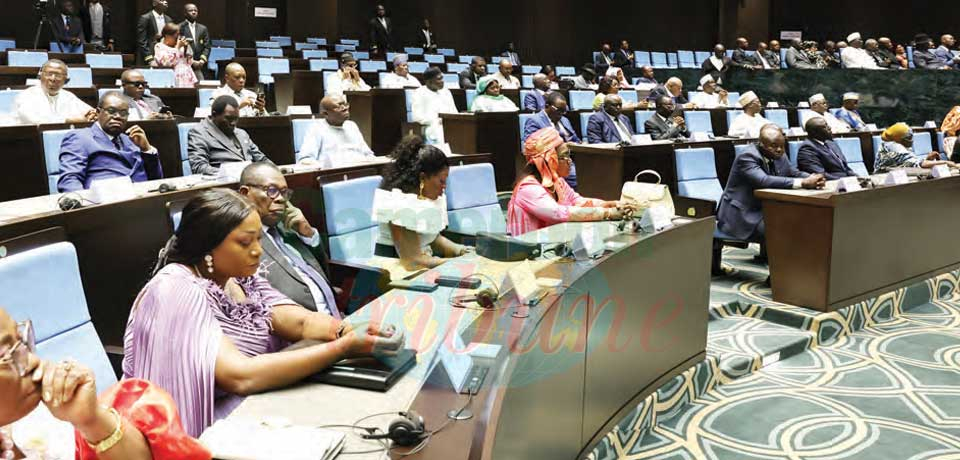
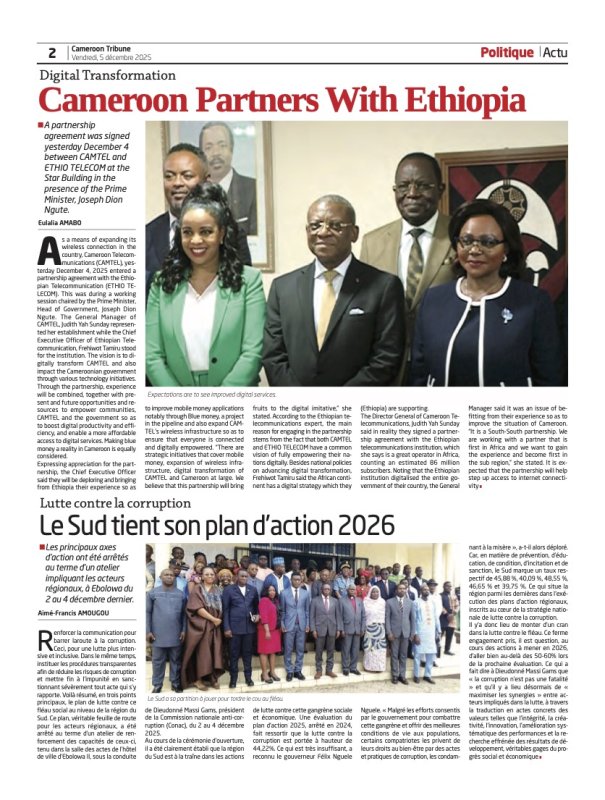




Commentaires